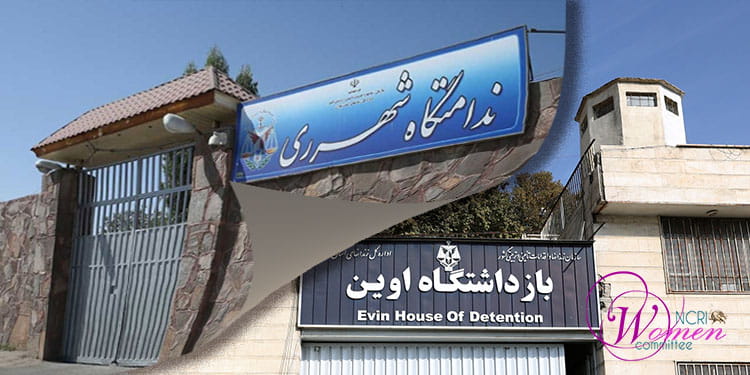In the early hours of Thursday, October 9, 2025, a group of female political prisoners who had been transferred to Qarchak Prison in Varamin following the attack on Evin during the 12-day conflict were returned to Ward 6 of Evin Prison in Tehran.
The transfer took place at around 6 a.m., involving a large security presence and several buses escorted by security forces. Eyewitnesses described a long convoy of vehicles along the route from Qarchak to Evin and the deployment of special guard units around Evin Prison during the transfer.
Extraordinary security and multi-layer inspections
Sources confirmed that extraordinary security measures were in place, including multiple inspection stages at Evin’s entrances. Guards reportedly conducted strict body and baggage searches as the prisoners were brought into the facility.
Inclusion of non-political detainees
Among those transferred to Ward 6 of Evin Prison, were four women charged with financial offenses, who have reportedly been placed in the same ward as female political prisoners.
No official explanation
Despite the sensitivity of the transfer, judicial and prison authorities have provided no official statement or justification.
This transfer took place following the death of political prisoner Somayeh Rashidi, who was held in Qarchak Prison and died due to denial of medical care. Her death sparked a wave of outrage and protest domestically and at the international level.
During this time, prisoners in both Evin and Qarchak repeatedly protested the transfer of female political prisoners to Qarchak. On Wednesday, September 30, 2025, thirty political prisoners held in Tehran’s Evin Prison issued a joint statement condemning the “inhuman conditions” faced by female political prisoners in Qarchak Prison, demanding the immediate transfer of female political prisoners back from Qarchak to Evin. They had also held protest gatherings and chanted slogans in the prison yard on September 25 and 29, demanding the return of the female political prisoners to Evin.
It should be noted that the recent return only applies to those prisoners who had been transferred to Qarchak after Israel’s June 23 attack on Evin during the 12-day conflict.
Qarchak remains a detention site for thousands of women imprisoned on common criminal charges. Moreover, political prisoners such as Maryam Akbari Monfared, who were already held in Qarchak, continue to be kept in this notorious facility in violation of the principle of separation of prisoners based on their charges.
Political prisoner Maryam Akbari Monfared, arrested during the 2009 uprising, is now serving her sixteenth year in prison without a single day of furlough. Her “crime,” which added two years to her original 15-year sentence, is her pursuit of justice for the execution of her siblings—the martyred PMOI (MEK) members Roghieh, Abdolreza, Alireza, and Gholamreza Akbari Monfared.
Abdolreza and Roghieh Akbari Monfared were executed during the 1988 massacre of political prisoners, while Alireza and Gholamreza Akbari Monfared, both members of the People’s Mojahedin Organization of Iran, were executed earlier in September 1981 and 1985 in Evin Prison.
